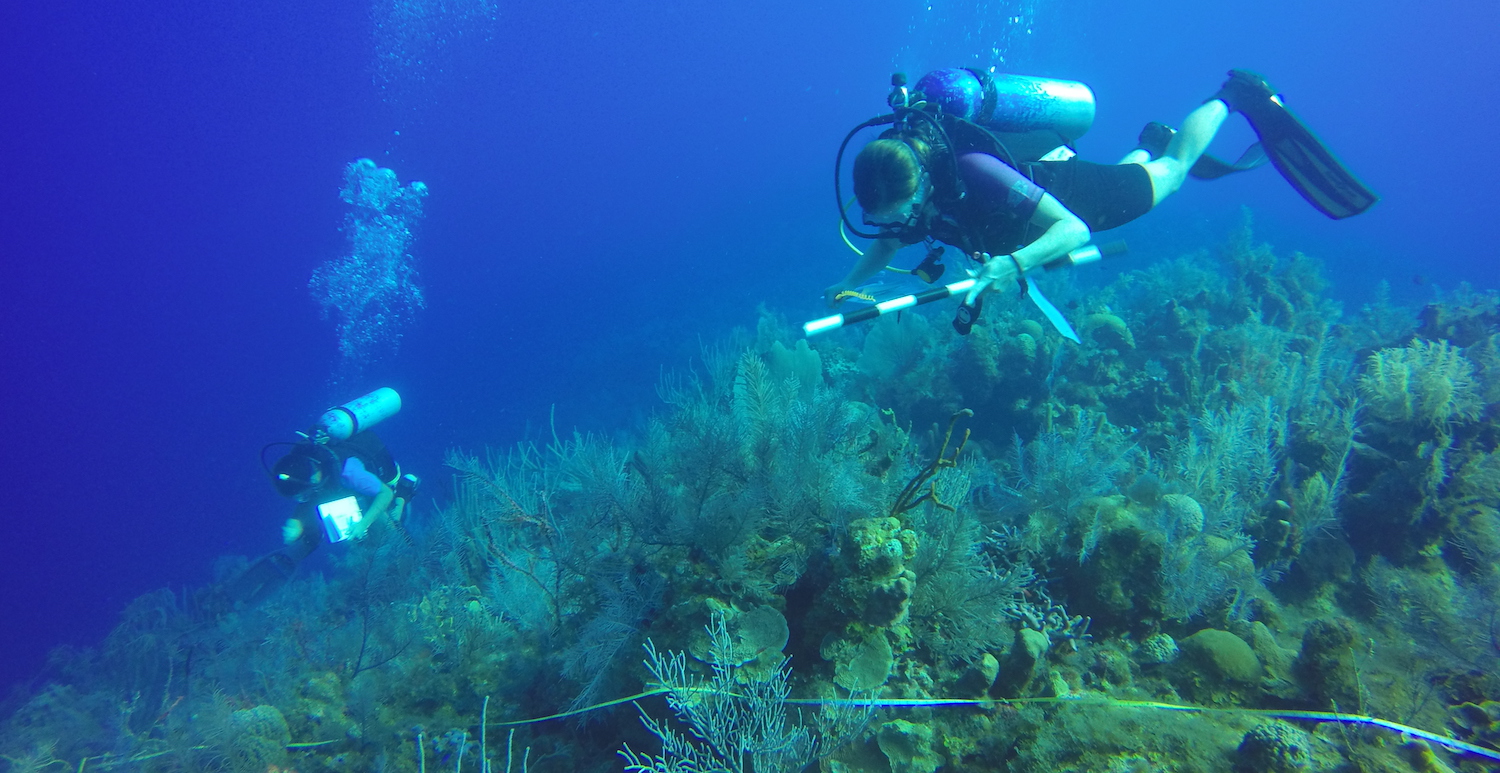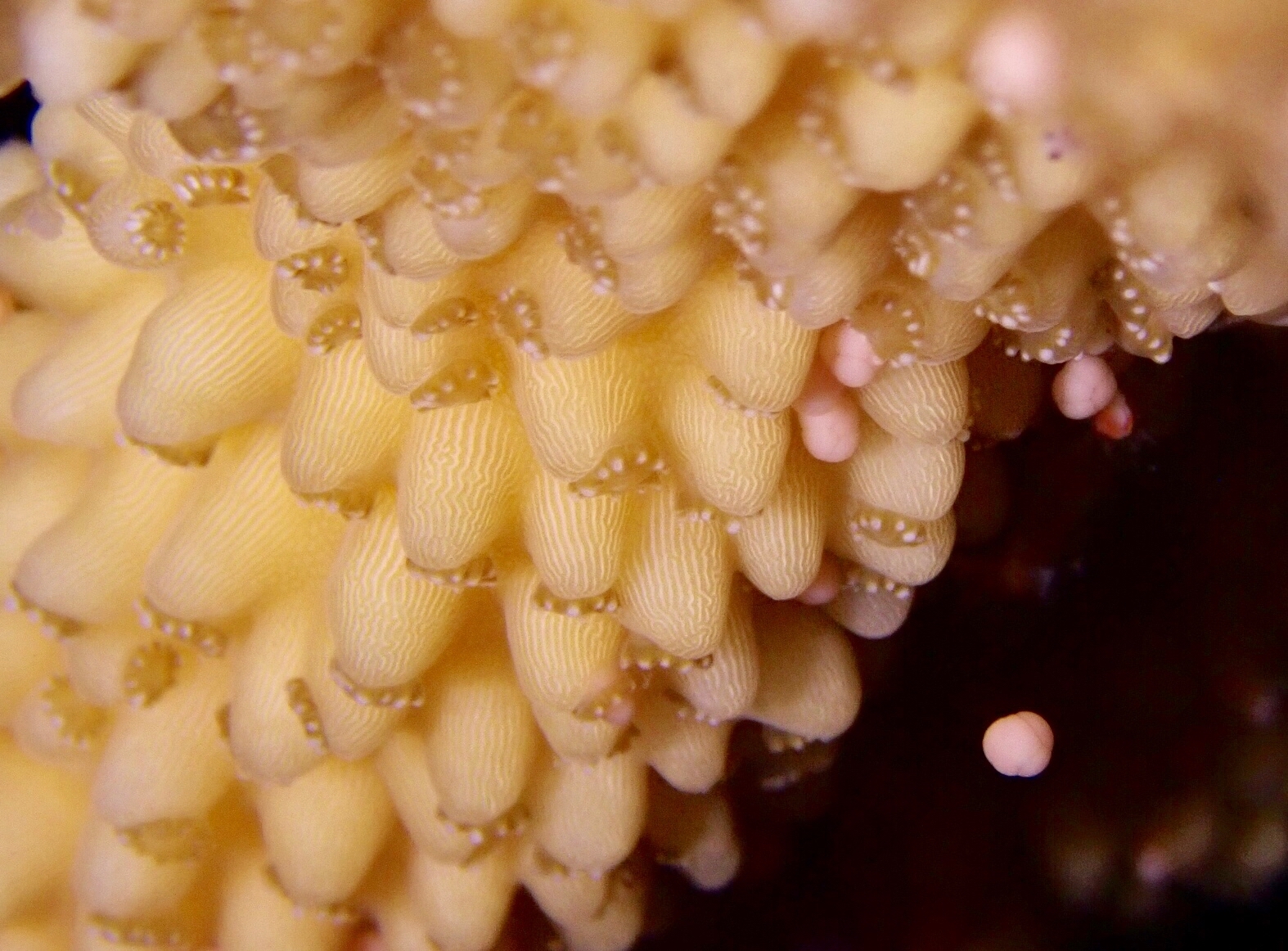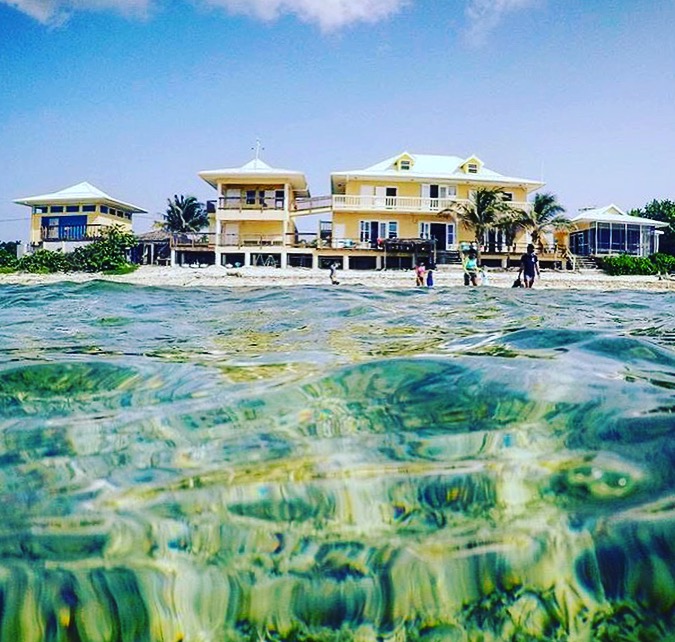Marine Life & Conservation
Big news from Little Cayman as it is named a Mission Blue Hope Spot this World Oceans Day (Watch Video)

Little Cayman Offers Hope for Coral Reefs
Little Cayman has successfully been championed to become a Mission Blue (Sylvia Earle Alliance) “Hope Spot” by the Central Caribbean Marine Institute (CCMI) as part of their World Oceans Day celebrations. The Hope Spot initiative was launched in 2009, and it now includes some of the world’s most precious ecosystems:
“Hope Spots are special places that are critical to the health of the ocean — Earth’s blue heart. Hope Spots are about recognizing, empowering and supporting individuals and communities around the world in their efforts to protect the ocean.”
https://youtu.be/ug6aVB6nFco
Little Cayman is being recognized as a Hope Spot because of the high abundance of threatened and endemic species found there. Just off the western point of Little Cayman is a site protected by the Cayman Islands Government that is one of the last remaining large spawning aggregation sites for the endangered Nassau grouper. Green, hawksbill and loggerhead sea turtles nest in the hundreds on Little Cayman’s beaches every year, and the coast is abundant with marine life, including seven species of sharks.

Bloody Bay Wall
Little Cayman’s coral reefs are also a vibrant contributor to the Island’s rich biodiversity. CCMI’s resilience, restoration and assisted evolution research efforts examine the features that enable corals to persist through time, despite changing conditions. This includes working with staghorn (Acropora cervicornis) and elkhorn coral (Acropora palmata), both of which are critically endangered following a disease outbreak and die-off in the 1980s. These coral species are crucial reef-builders that used to be prevalent throughout the Caribbean, and they are extremely important to the resiliency of healthy coral reefs. Little Cayman’s biodiversity both on land and in the ocean are significant, and CCMI’s scientific discoveries continue to grow our knowledge of these key ecosystems.
Little Cayman is also supported by impactful organisations that seek to identify a more sustainable future, including the Cayman Islands Department of Environment, the Cayman Islands National Trust, the Sister Islands Tourism Association (SITA), the Grouper Moon Project and a host of engaged patrons and stakeholders who reside on Little Cayman. Conservation legislation of ecologically important species developed by the Cayman Islands Government, such as the early adoption of Marine Park Areas (MPAs), no dive zones and specific species protection policies, has also played a crucial role in protecting biodiversity locally.

Nursery Coral Spawning
Dr Carrie Manfrino, CCMI’s founder and president, identified the positivity regarding Little Cayman’s unique reef health when she set up the organisation in 1998:
“The reefs of Little Cayman are indicating resilience, and we know healthy reefs lead to healthy lives. Since 1999, the scientific team at CCMI has completed field expeditions using the Atlantic & Gulf Rapid Reef Assessment (AGRRA) protocol to get a snapshot of the status of the reefs in the region. Our results indicate that whilst Little Cayman reefs are not immune to the impacts of local and global change, they have remained stable over time and appear to be more resilient than other Caribbean coral reef systems.”
Survey results from CCMI’s 1999-2019 AGGRA provide a glimmer of hope on an otherwise stormy outlook for coral reefs across the globe. What does a Hope Spot and empirical evidence of a stable coral reef ecosystem really mean? Simply put, Little Cayman is a unique island that indicates coral reefs, and therefore the ocean, can be resilient. Resilience is the key to adapting to changing climate, enabling us to understand how to sustain reefs systems for the future. Little Cayman’s reefs therefore create real hope for the future.

Dr Manfrino has a clear message for everyone this World Oceans Day:
“By protecting the ocean today, we are protecting the future of humanity. We can stop the ocean crisis by making a commitment to more sustainable lifestyles. Make that commitment this 2020 World Oceans Day – to reduce your impact on the ocean, whether you are a business, a tourist, or stakeholder. Recognize the changes that you have made and make them everlasting.”
 CCMI invites the public to join CCMI’s virtual World Oceans Day celebrations this year, a part of their “We Need Healthy Reefs” campaign, which includes the launch of the Little Cayman Hope Spot, an underwater photography exhibition and auction, and underwater photography webinars (free to participate; registration is required). A full schedule of World Oceans Day events can be found at www.reefresearch.org/get-involved/events-outreach/world-oceans-day/.
CCMI invites the public to join CCMI’s virtual World Oceans Day celebrations this year, a part of their “We Need Healthy Reefs” campaign, which includes the launch of the Little Cayman Hope Spot, an underwater photography exhibition and auction, and underwater photography webinars (free to participate; registration is required). A full schedule of World Oceans Day events can be found at www.reefresearch.org/get-involved/events-outreach/world-oceans-day/.
CCMI shares the results from their monitoring work with the public via their Healthy Reefs outreach campaigns to improve knowledge and ocean stewardship, which can also be found here: www.reefresearch.org/what-we-do/research/healthy-reefs/
Marine Life & Conservation
Paul Watson Released as Denmark Blocks Japan’s Extradition Bid

Renowned anti-whaling activist Paul Watson has been released from custody in Greenland after spending five months in detention. Denmark’s Justice Ministry rejected Japan’s request for his extradition, citing insufficient guarantees that his time already served in custody would be credited against any potential sentence.
The 74-year-old Canadian-American was arrested on July 21 in Nuuk, Greenland’s capital, when his ship docked to refuel. His arrest was based on a 2012 Japanese warrant related to a 2010 encounter in Antarctic waters. Japan alleged Watson obstructed operations and caused damage to a whaling research ship during efforts to disrupt illegal whaling. Watson has consistently denied these claims, maintaining his commitment to marine conservation.
Denmark, which oversees extradition matters for Greenland, concluded that while the legal conditions for extradition were met, the lack of assurances from Japan regarding time-served credit made extradition untenable.
In a video shared by his foundation, Watson expressed gratitude and relief, saying, “After five months, it’s good to be out… and good to know they’re not sending me to Japan.” He added that the most difficult part of his time in custody was being separated from his two young sons.
Watson is a pioneering figure in marine conservation, known for founding the Captain Paul Watson Foundation in 2022 after decades of activism with the Sea Shepherd Conservation Society. His bold efforts to defend marine life have earned him widespread support, including from celebrities and conservationists. His work has also been featured in the acclaimed reality TV series Whale Wars.
Watson’s lawyer, Jonas Christoffersen, praised the decision, stating, “We are happy and relieved that Paul Watson is now free.” He added that Watson is eager to reunite with his family and continue his vital work.
The arrest occurred while Watson’s vessel, the M/Y John Paul DeJoria, was en route to the North Pacific with a team of 26 volunteers to intercept a Japanese whaling ship. His foundation described the arrest as politically motivated and emphasized that Watson’s actions were focused on ending illegal whaling practices.
Japan resumed commercial whaling in 2019 after leaving the International Whaling Commission, asserting that whale meat is a cultural tradition. Conservationists, however, continue to challenge these practices, highlighting their impact on marine ecosystems.
Despite the challenges, Watson remains steadfast in his mission to protect marine life and bring attention to whaling practices. His dedication to ocean conservation has made him a globally respected advocate for the environment.
Marine Life & Conservation
12 Days of Zero-Waste Fish-mas

This holiday period, the Marine Conservation Society, the UK’s leading ocean membership charity, invites you to make some simple changes to eating fish this Christmas to help our seas.
Dr Kenneth Bodles, Head of Fisheries and Aquaculture at the Marine Conservation Society, said, “During the festive season, our consumption increases, but so does waste. Sustainability isn’t just about where food comes from – it’s also about how you use it. By reducing waste and making the most out of your seafood, you’re not only taking steps to be more ocean-friendly, but can also help to cut costs during what is often one of the most expensive times of the year”.
The Marine Conservation Society has compiled twelve tips on how to consume seafood sustainably with zero-waste this Christmas:
Buy whole fish instead of fillets
Instead of fillets, consider buying whole fish such as salmon, hake, or lemon sole. By adopting a “nose to tail” approach with cooking, whole-baked fish not only feeds a crowd, but also helps to minimise waste and maximise sustainability by using up every part of the animal, including bones, skin, and fat.
Make fish stock
Leftover fish bones or shells can be put to good use by boiling them to make a nourishing fish stock or bisque. This can be frozen and preserved for later use and makes for a flavourful base in a soup.
Make your own fish pâté
Avoid waste by turning leftover fish, such as smoked mackerel or salmon, into a delicious pâté by blending with cream cheese and lemon. Perfect when paired with crackers.
The sustainability of salmon and mackerel varies depending on where and how it is caught or farmed. For more information on green-rated options, check the charity’s Good Fish Guide.
Buy frozen
By purchasing seafood that is frozen or vacuum-packed, this helps to reduce waste by extending the shelf life of your food.
Fish pie
If you’re wondering what to do with leftover cooked fish, why not opt for a classic fish pie with mashed potatoes, leeks, and a cheesy sauce? A sure crowd pleaser on Boxing Day.
Use the head
Don’t forget the fish head! The meat is incredibly tender and flavourful. The charity recommends a cod’s head curry or recreating Fallow’s renowned cod’s head in siracha butter.
By stretching your ingredients further, not only is this a more sustainable way to enjoy seafood, but also cost-effective by repurposing leftovers and cooking creatively.
Boxing Day brunch
Mix leftover kippers or smoked salmon with scrambled eggs for a tasty, zero-waste, Boxing Day brunch.
For best choice, make sure you buy kippers, or herring, from the North Sea and the North Irish Sea.
Zero-waste storage
A top tip from the Marine Conservation Society to avoid waste is freezing fish offcuts to save for future use.
Crisp up the skin
Even leftover fish skin can be turned into a quick savoury snack by crisping it up in an air fryer with a little olive oil and salt.
Anchovies two ways
Leftover anchovies can either be blended with butter to make a delicious anchovy butter or tossed into pasta for a hit of umami flavour.
The charity recommends opting for anchovies caught in the Bay of Biscay for best choice.
Fishcakes
For an easy, zero-waste meal, leftover seafood trimmings can be mixed with mash and fried in breadcrumbs to make fishcakes.
Pickled mussels
Try pickling mussels in 1:1 vinegar and water, with a dash of sugar for a sustainable, zero-waste snack that can be enjoyed well beyond the festive season.
Mussels farmed in the UK are a seafood superhero. Grown using low-impact methods and harvested by hand, they get all the food they need from the sea around them. This makes them one of the most sustainable, ocean-friendly, and cost-effective seafood options.
Players of People’s Postcode Lottery have raised £6.6M towards the Marine Conservation Society’s vital work in making seafood more sustainable.
Laura Chow, Head of Charities at People’s Postcode Lottery, said: “Fish is a festive favourite for many, but making sustainable choices when it comes to how we buy and eat seafood makes all the difference for our ocean. Support from players of People’s Postcode Lottery has helped the Marine Conservation Society further its sustainable seafood work, so that we can all enjoy healthier, better protected seas.”
The Marine Conservation Society encourages you to make sustainable seafood choices a year-round habit, not just for Christmas. To check how sustainable the seafood on your plate is, you can visit the charity’s Good Fish Guide. The Guide helps consumers and businesses identify the most sustainable seafood using a simple traffic light system, based on where and how species are caught or farmed. Green is the best choice, amber means improvements are needed, and red indicates fish to avoid buying.
Zero-waste gift idea
Why not embrace a zero-waste Christmas by gifting a membership to support marine conservation? It’s a meaningful, low-waste gift that helps protect our ocean for generations to come. Memberships start from as little as £5 a month – the price of a sandwich and drink from your local coffee shop.
Find the latest sustainable seafood advice for wild-caught and farmed seafood on the Good Fish Guide, downloadable to your phone from www.mcsuk.org/goodfishguide.
-

 News2 months ago
News2 months agoIconic SS United States to become the World’s Largest Artificial Reef
-

 News3 months ago
News3 months agoBook Review – 52 Assignments: Underwater Photography
-

 Gear News3 months ago
Gear News3 months agoDYNAMICNORD – New German diving brand enters the British market
-

 News3 months ago
News3 months agoExploring Cenote El Pit: A Diver’s Dream
-

 Gear News3 months ago
Gear News3 months agoTry BARE drysuits (and maybe even win one!) this Friday with Sea & Sea at North West Dive Fest
-

 Marine Life & Conservation3 months ago
Marine Life & Conservation3 months agoBook Review: Coral Triangle Cameos
-

 Blogs2 months ago
Blogs2 months agoDive the Egyptian Red Sea this Autumn with Regaldive
-

 News3 months ago
News3 months ago2024 Ocean Art Underwater Photo Competition Announced



